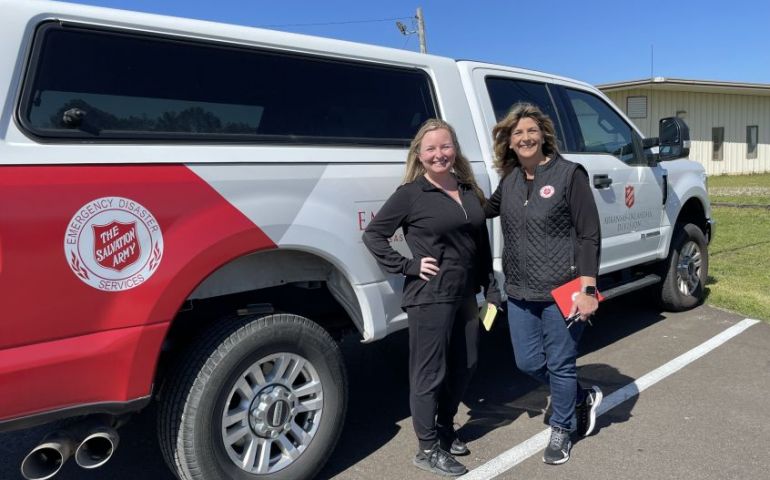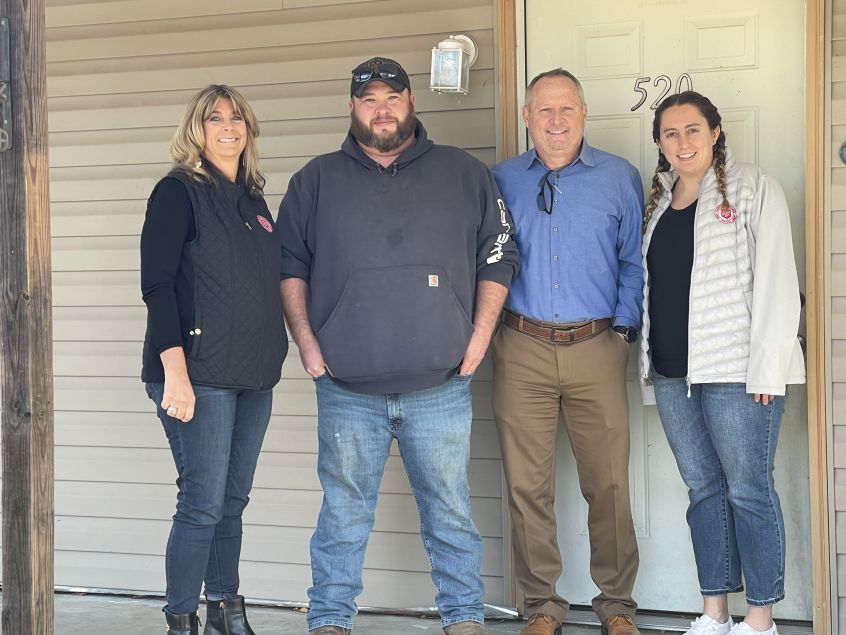Bridging the gap: Disaster case management transforms tornado recovery

“Without this grant, disaster case management services were not available, and the population in need would have drained an already stressed social services network.” — Laurie Fried, Emergency Disaster Services Director.
On the evening of Dec. 10, 2021, a tri-state tornado swept through Monette and Leachville, Arkansas, causing significant destruction and loss. Two lives were tragically lost, one at Monette Manor nursing home, where residents and staff were trapped, and another at a local store in Leachville.
Several homes, mobile homes, businesses, including two industrial buildings and a nursing home, as well as critical infrastructure, were damaged or destroyed in the tornado. Many residents, especially those who are low-income and with limited resources, faced the overwhelming challenge of recovery.
For many tornado survivors in these rural areas, limited insurance coverage left low-income families at risk. Without immediate assistance from organizations and experts, the most at-risk community members faced the possibility of being left behind in the recovery process.
CDP’s Midwest Early Recovery Fund supported The Salvation Army Arkansas/Oklahoma Division in providing vital disaster case management services to the community.
“Without this grant, disaster case management services were not available, and the population in need would have drained an already stressed social services network,” said Laurie Fried, Emergency Disaster Services Director.
The Salvation Army helped survivors identify needs, coordinate resources and fill gaps left by federal programs.
They contacted survivors and quickly began intake for more than 60 households. Flyers, social media campaigns and community meetings helped connect survivors with services, ensuring those affected by the disaster had a path to rebuild.
The Salvation Army also was able to address several other critical recovery needs. One of the most pressing issues was debris removal. With no public assistance declaration for the affected counties, homeowners were left responsible for clearing debris from their properties. Thanks to the collaborative efforts between case managers, city officials and a local contractor who donated labor, debris from 40 homes in Trumann and four homes in Leachville was finally cleared, bringing much-needed relief to the community.

The Salvation Army’s work extended beyond immediate recovery. They hosted disaster case management training for 18 individuals across several organizations, ensuring that a network of trained professionals would be ready for future disasters. Additionally, their leadership in establishing long-term recovery committees brought together local agencies, churches and nonprofits to pool resources and build a more resilient community. Their impact also stretched into neighboring areas when the long-term recovery committee mobilized to assist with the March 2023 tornado in Wynne, Arkansas.
The grant’s far-reaching benefits even included legal assistance for several clients, helping with complex issues such as FEMA appeals, landlord-tenant disputes and property deeds. The Salvation Army also helped equip families for future emergencies by distributing disaster preparedness bags to more than 320 households during community events.
CDP is proud to have supported the Salvation Army Arkansas/Oklahoma Division’s vital recovery efforts. This work aligns closely with our mission of strengthening communities through equitable and effective disaster recovery. By funding culturally-competent disaster case management, we ensured that all survivors, especially those from low-income backgrounds, were empowered to rebuild their lives.
“Without resilience efforts like this, many households would have fallen through the cracks,” Laurie Fried shared.
This project brought stability to tornado-affected families and fostered long-term collaboration, building stronger, more prepared communities for the future.